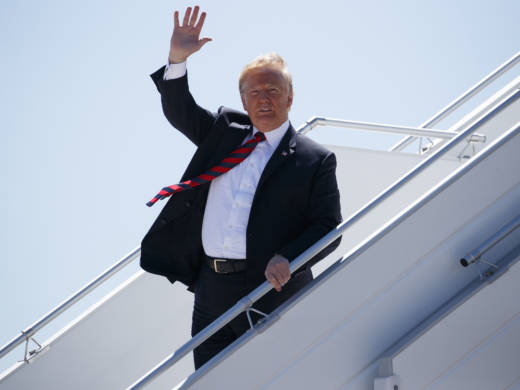President Trump is signaling he's willing to support a move toward the legalization of marijuana, which would be a departure from the position of his attorney general, Jeff Sessions.
Sessions has been known for his vocal opposition to marijuana legalization, calling it a "very real danger" during his Senate confirmation hearing, and saying, "Good people don't smoke marijuana."
Speaking to reporters as he left the White House Friday morning for the G-7 summit in Canada, Trump said, "I probably will end up supporting" bipartisan legislation that would give states wide latitude over marijuana regulation.
Asked about the proposal by Republican Sen. Cory Gardner of Colorado, Trump said, "I support Sen. Gardner. I know exactly what he's doing; we're looking at it. But I probably will end up supporting that, yes."
Gardner is co-sponsoring the legislation with Massachusetts Sen. Elizabeth Warren, a Democrat.

9(MDAxOTAwOTE4MDEyMTkxMDAzNjczZDljZA004))